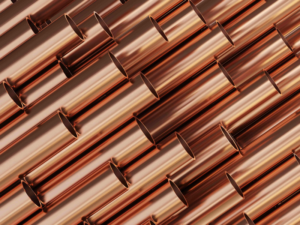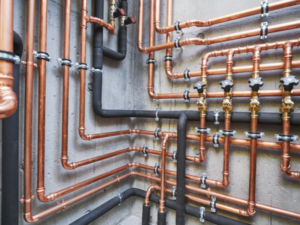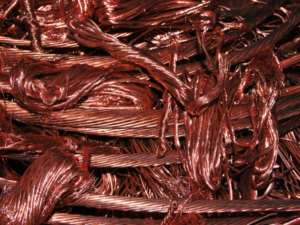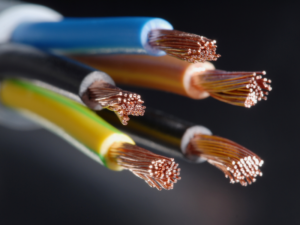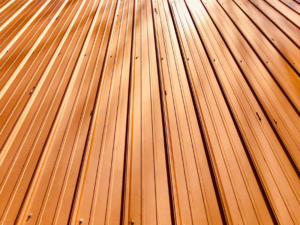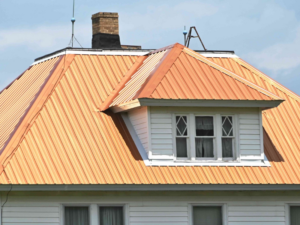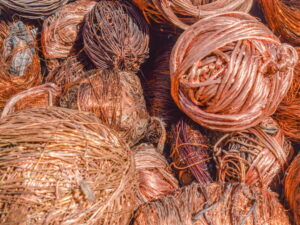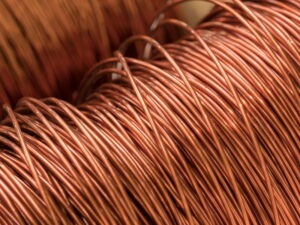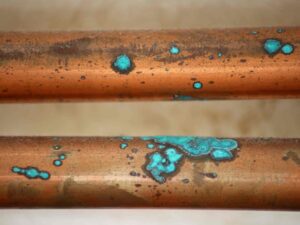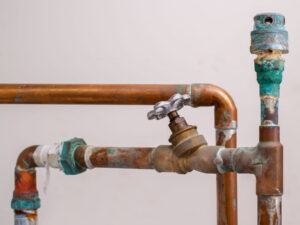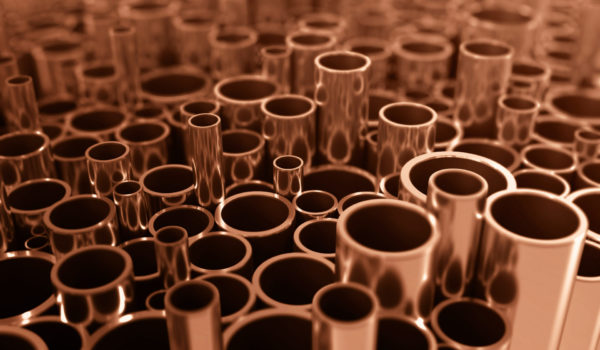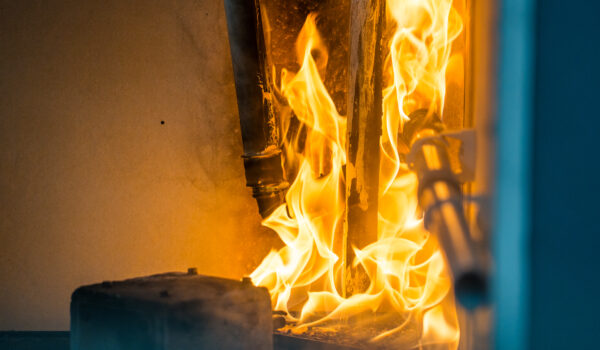The environmental benefits of recycling copper are well documented: not only does it reduce landfill waste and preserve natural resources, but it also lowers emissions from the mining of virgin copper.
For professionals in the plumbing and construction industries, recycling scrap copper can also net a healthy income, all while improving your ESG credentials.
Should you find yourself with scrap copper, you may wonder what you can do to fetch the best price. That’s why we’ve prepared a simple guide walking you through the key things to consider when recycling scrap copper.
How does copper recycling work?
Copper recycling refers to the recovery and processing of copper materials from end-of-life products and structures like cars, buildings and electrical appliances.
The copper is separated from other materials and then sent to scrap metal recycling centres in a process known as urban mining, where it is then melted down and cast into new products.
Highly sought after due to its impressive versatility, copper is considered one of the most valuable types of metal by scrap metal collectors.
What types of copper can be recycled?
Copper is an infinitely recyclable material, which means that all types of copper can be recycled. Some of the most common types of products you’ll find in a copper scrap yard are pipes, wires and roofing sheets.
Copper pipes
Scrap copper can be recovered from old plumbing, heating and fire sprinkler systems, as well as the valves and fittings used in copper pipework.
In many cases, copper pipes are adjoined by other materials like brass fittings and tin soldering. These must be removed before the copper pipes can be recycled.
Copper wires
Copper wires are used widely in electronic devices and household appliances. Whenever an old building is demolished, there will typically be large amount of electrical copper wire that can be recovered.
Before recycling can begin, copper wires must be stripped of any insulating materials. This is why bare copper cables are considered the highest grade of copper by scrap metal collectors.
Copper roofing
Copper is also used in roofing sheets and panels, with these mostly made of recycled scrap copper rather than virgin copper.
Due to the build-up of paint and tar on copper roofing sheets, these are generally classified as one of the lower grades of scrap copper.
What are the different grades of scrap copper?
Scrap copper that’s free from impurities and separated from other materials can be recycled with minimal processing, and therefore commands a higher price than lower quality scrap copper.
Scrap metal recyclers classify scrap copper based on its overall copper content, with each grade fetching a different price.
Bare bright copper
Bare bright copper, the leading grade of scrap copper, is reserved for uncoated and unalloyed copper wires and cables that have been separated from any insulating materials.
This classification excludes copper pipes, even those that of are of the highest quality, and commands the highest price at copper scrap yards.
#1 copper
Second to bare bright copper is #1 copper, which includes high-quality copper pipes as well as bus bars, clippings and uncoated copper wires that fall short of the bare bright copper classification.
Small amounts of oxidation are allowed in this category; however, corrosion should be kept to a minimum and other materials must be removed.
#2 copper
#2 copper may show more signs of corrosion than #1 copper and is often characterised by scrap metal collectors as having a dirty appearance.
Scrap copper likely to fall into this category includes unalloyed copper wires and copper pipes that still have paint, solder and other types of coating.
Insulated copper wire
Insulated copper wire is less valuable than other types of scrap copper as the insulating material must be removed before recycling.
There are further classifications within the category based on the degree of insulation and whether the copper wire is alloyed or coated with other materials.
Five tips for recycling scrap copper
There are several steps you can take to speed up the process of selling your scrap copper and ensure you get the best value of money.
Clean your scrap copper
Once you’ve recovered your scrap copper, you can increase its value by removing paint, solder, coating, insulation or any other adjacent materials.
Be careful when cleaning scrap copper and carry out this step only if you know what you are doing and have the right tools at hand.
Sort your scrap copper
With your scrap copper cleaned, you can sort it into groups based on the different grades of scrap copper you have at your disposal.
For example, bare and insulated copper wire should be kept separate, while copper pipes can be grouped with either #1 or #2 copper depending on their quality.
Research copper prices
Copper prices are known to fluctuate, and this can have flow through to the going rate for copper at scrap metal recycling facilities.
If you’re a scrap metal collector, it’s worth keeping an eye on the copper market so that you can sell while the price is up.
Sell in bulk if possible
Scrap metal collectors tend to offer better rates when buying in large quantities, so if you regularly collect scrap copper, it may be best to build up your supplies before selling.
If you’re a home or business owner with a small amount of scrap copper, most scrap metal dealers will still do business with you from as little as £10 worth of copper.
Find the right scrap metal recycler
The number of copper recycling plants both in the UK and abroad is on the up, giving scrap copper collectors more options for selling their goods.
When doing your research, look out for any restrictions on scrap copper and choose a scrap metal recycler whose services closely align with your needs.
Copper recycling: the right choice for all
The recycling of scrap copper is an important step in the move toward a zero-waste society, helping to meet the needs of the present without compromising those of the future.
Not only that, recycling copper from old products and disused buildings is a great way to earn some additional income, all while playing your part in the circular economy.
If you want to learn more about copper’s sustainable properties, make sure to check out our other news items.
